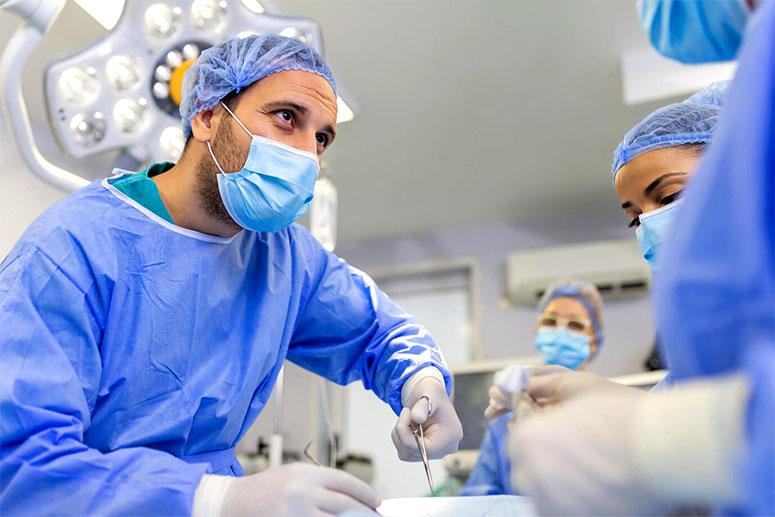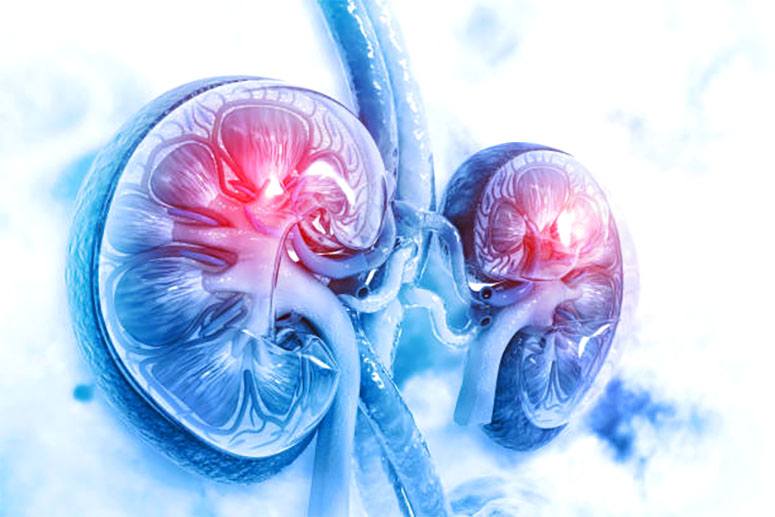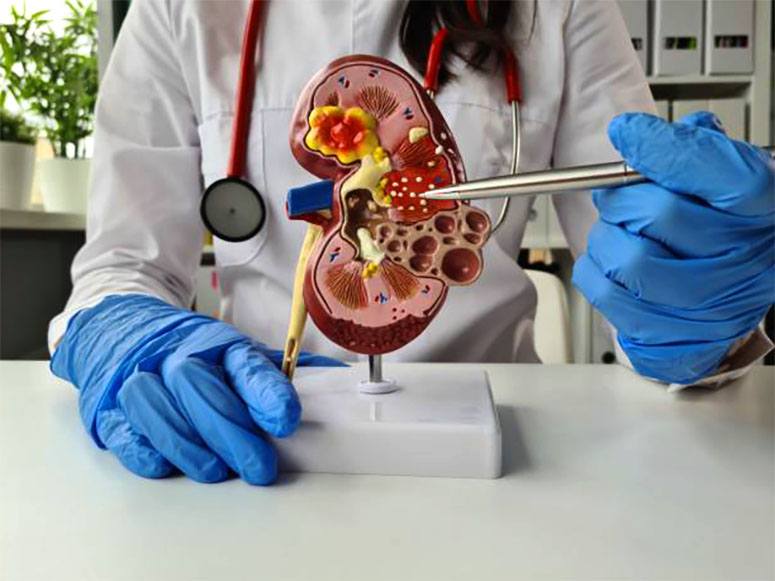Contents
What are the odds of being a kidney donor match to a stranger? – In a world where the need for organ donations continues to rise, many people are wonder about that question
This article explores the various factors that influence match probability, the role of the National Kidney Registry, and the innovative concept of paired kidney donation.
We will guide you through the process of becoming a donor, from initial screening to recovery. We will weigh the risks and benefits, providing a comprehensive look at this life-saving decision.
Join us as we uncover the realities of kidney donation and what it means for both donors and recipients.
What are the odds of being a kidney donor match to a stranger?
The odds of being a kidney donor match to a stranger can be quite complex, influenced by various factors such as blood type, tissue type, and HLA typing.
Understanding the probabilities involved in donor-recipient matching is essential for both potential donors and recipients navigating the organ transplant landscape.
Knowing what are the odds of being a kidney donor match to a stranger can help in understanding how matching algorithms work and the significance of donor demographics in the donor registry.
With the increasing need for organ transplants, knowing how matching algorithms work and the significance of donor demographics in the donor registry plays a critical role in successful kidney donation.
This exploration involves examining factors like medical history and health factors that determine compatibility, as these aspects greatly impact transplant success rates and overall outcomes.
1. Factors that affect match probability

Several critical factors affect the probability of being a successful donor match, encompassing compatibility aspects such as blood type, tissue type, and health factors unique to each individual.
These attributes play a pivotal role in determining whether a transplant or transfusion can proceed smoothly.
Blood type compatibility is not merely about matching A, B, AB, or O but also emphasizes the significance of Rh factors, which can significantly influence the immune response post-transfusion.
Rh factors are important because they can impact how well the donor’s and recipient’s immune systems interact, potentially affecting the success of the transplant.
Tissue matching, primarily rooted in human leukocyte antigens (HLA), creates a unique code for each person that must align closely between donor and recipient to minimize the risk of rejection. The HLA system is complex, and the closer the match, the lower the chance of the recipient’s body rejecting the donated organ. This complexity raises the question of “What are the odds of being a kidney donor match to a stranger?
A high level of HLA compatibility can greatly improve the odds of a successful transplant and long-term acceptance of the new kidney.
Rigorous health screenings and comprehensive medical evaluations filter prospective donors, helping to ensure that underlying health issues won’t complicate the procedure.
This thorough evaluation process includes assessing the donor’s overall health, kidney function, and any pre-existing conditions that might impact the surgery or the recipient’s health.
Thus, a multifaceted approach is essential for fostering a successful donor-recipient relationship. This approach not only involves matching blood and tissue types but also ensuring that the donor is in optimal health and that any potential risks are minimized. By addressing these factors, the likelihood of a successful and smooth transplant is significantly enhanced.
2. National kidney registry
The National Kidney Registry serves as a crucial platform in facilitating kidney donation, connecting potential living donors to recipients in need of an organ transplant, which significantly impacts the kidney transplant waiting list.
By streamlining the process and increasing accessibility to donor registries, this organization not only enhances the donor pool but also diversifies donor demographics, making the matching process more effective.
This platform helps answer what are the odds of being a kidney donor match to a stranger by improving the accuracy and efficiency of the matching process.
It implements innovative strategies to promote awareness about kidney donation, encouraging more individuals to consider becoming donors.
The registry’s commitment to creating a more inclusive network ensures that patients from various backgrounds have increased opportunities for receiving the life-saving transplants they desperately require.
Ultimately, the National Kidney Registry plays a vital role in boosting kidney donation rates, creating a more robust organ transplant system that saves lives.
3. Paired kidney donation
Paired kidney donation is an innovative approach to address organ shortages, allowing incompatible donor-recipient pairs to exchange kidneys, overcoming barriers and increasing the chances of successful organ transplants.
This remarkable process not only enhances the odds of finding compatible matches for recipients but also serves to significantly improve the overall effectiveness of kidney transplants.
As many individuals suffer from chronic kidney disease, often facing long waiting times on transplant lists, this method provides a viable solution to the pressing issue of organ allocation.
What are the odds of being a kidney donor match to a stranger? Paired kidney donation helps answer this question by improving the chances of finding suitable matches that might otherwise be overlooked.
Paired kidney donation aligns with ethical considerations by ensuring that donors receive fair treatment and recognition for their contributions, while recipients benefit from more suitable organs.
Ultimately, this collaborative model fosters a more equitable system, ultimately leading to better health outcomes and increased transplant success rates.
What is the process of being a kidney donor match to a stranger?

The process of becoming a kidney donor match to a stranger involves several steps designed to ensure both donor safety and recipient compatibility, starting from initial interest through to extensive medical evaluations and health screenings.
1. Initial screening
Initial screening for potential kidney donors is a critical first step in the donor evaluation process, aimed at identifying basic eligibility and assessing potential donor risks before proceeding further.
This comprehensive process involves a series of medical assessments and adherence to health regulations designed to evaluate each candidate’s overall health status and specific medical history.
During these evaluations, healthcare professionals examine various factors, including kidney function tests, blood pressure measurements, and a thorough review of any pre-existing conditions.
Such assessments are essential, as they help determine not only the suitability of the donor but also safeguard the well-being of both donors and recipients.
By ensuring that all participants meet stringent health criteria, the screening process fosters a safer environment for transplantation and minimizes the likelihood of complications during and after the procedure.
2. Medical evaluation
A thorough medical evaluation is essential for potential kidney donors, as it assesses donor eligibility and evaluates kidney function to mitigate any risks associated with the donation process.
This evaluation encompasses a range of tests and assessments designed to ensure both the donor’s safety and the recipient’s successful transplant outcomes.
Among these, kidney function tests play a crucial role, as they measure the organs’ efficiency in filtering waste and maintaining fluid balance.
One common concern for potential donors is, “What are the odds of being a kidney donor match to a stranger?” This question highlights the importance of compatibility tests, which are part of the regular health screenings that unveil any underlying conditions that might compromise the safety and efficacy of the donation process.
Considerations regarding immunosuppressive therapy are vital, ensuring that potential donors are educated about the implications of their choice and the necessary medications required post-transplant.
Regular health screenings are imperative to ascertain compatibility, as they unveil any underlying conditions that might compromise the safety and efficacy of the donation process.
Ultimately, these steps not only safeguard the donor but also facilitate a smooth transition for the transplant recipient.
3. Surgery and recovery
Following successful evaluations, the kidney donation surgery is performed, leading to a recovery period that is crucial for both the donor’s health and the transplant outcomes for the recipient.
The surgical procedure typically involves a laparoscopic or open approach, during which the surgeon carefully removes one kidney while minimizing trauma to surrounding tissues.
Post-surgery, the donor can expect to face a recovery phase filled with rest and ongoing monitoring. Understanding potential risks such as infection or bleeding is vital, making communication with healthcare providers essential.
Participating in scheduled follow-up appointments is crucial for long-term kidney health, as these check-ups help ensure that everything is functioning properly and provide an opportunity for addressing any concerns that may arise during the healing process.
Moreover, addressing common questions like “What are the odds of being a kidney donor match to a stranger?” helps in preparing donors for the emotional and physical aspects of recovery.
This comprehensive approach ensures that both the donor and recipient have the best possible outcomes post-transplant.
What are the risks and benefits of being a kidney donor match to a stranger?
The decision to become a kidney donor match to a stranger entails a careful consideration of the associated risks and benefits, weighing the potential emotional factors and quality of life improvements for both donor and recipient.
1. Risks of surgery
While kidney donation is generally safe, there are inherent risks of surgery that potential donors must consider, including complications and health regulations governing the transplant process.
These risks primarily arise from the invasive nature of surgical procedures, which can lead to infections, excessive bleeding, or adverse reactions to anesthesia.
The donor may experience long-lasting effects such as chronic pain or changes in kidney function.
It’s crucial for individuals contemplating donation to thoroughly understand the legal health regulations that are designed to protect them, including informed consent protocols and the evaluation process to ensure their safety.
Transparency in the surgical process and adequate aftercare are also vital to mitigate any concerns related to donor risks and maintain the highest standards of care.
2. Long-term health risks

Beyond immediate surgical risks, potential kidney donors should also be aware of long-term health risks that may affect their kidney function and overall health post-donation.
Research indicates that some donors may experience a decline in kidney function over time, which could lead to complications such as hypertension and increased proteinuria.
It’s crucial for them to understand that their existing kidney is bearing the brunt of filtration duties, making regular check-ups and screenings vital in safeguarding their long-term health.
Studies have shown that ongoing health monitoring can play a significant role in identifying any early signs of kidney impairment, allowing for timely interventions.
Therefore, potential donors should engage in thorough discussions with healthcare providers not only about the immediate benefits of their donation but also about adhering to long-term health management strategies to ensure optimal kidney health after donation.
3. Benefits of kidney donation
Kidney donation offers numerous benefits, including the emotional satisfaction derived from helping a stranger and the potential for improved quality of life for both the donor and recipient.
This altruistic act not only enhances the health and longevity of the recipient but also enriches the life of the donor in profound ways.
Many donors report a deep sense of fulfillment, often describing their experience as transformative and enableing.
In fact, studies indicate that living donors experience lower rates of anxiety and depression following their donation, highlighting the psychological uplift associated with this generous act.
Kidney transplants from living donors have an impressive success rate, which significantly extends the lives of recipients.
Anecdotes abound of families reunited with loved ones who have thrived post-transplant, driving home the heartwarming reality that this noble decision can leave lasting impacts on multiple lives.
You can find our FAQ of what are the odds of being a kidney donor match to a stranger further down on the page.
Dive into the intriguing realm of probabilities and rare events. Feed your curiosity and discover more captivating topics at WhatAreTheOddsOf.NET.



